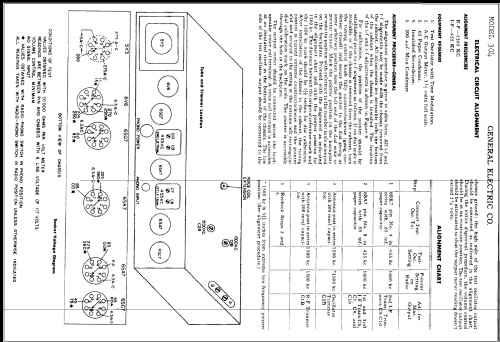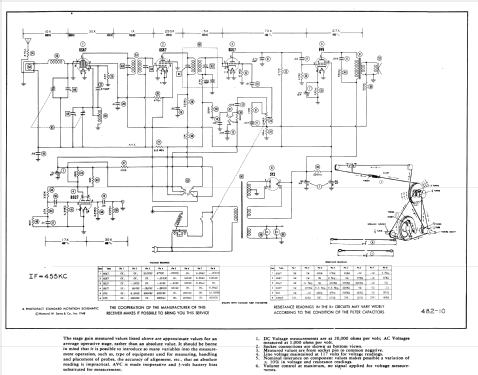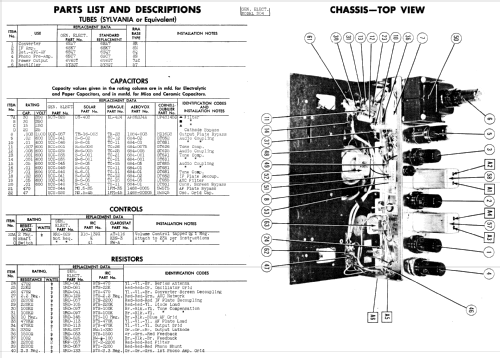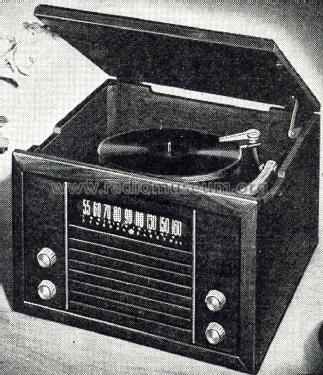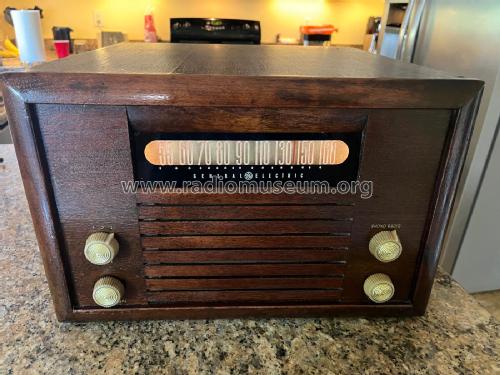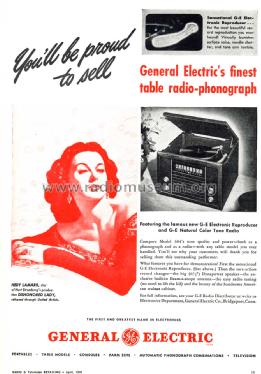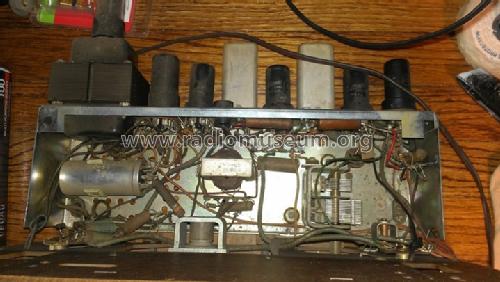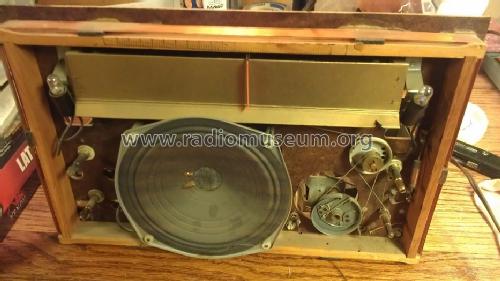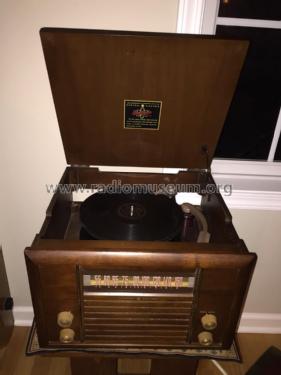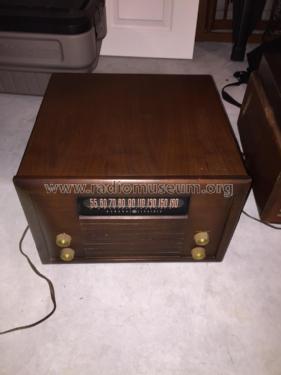- País
- Estados Unidos
- Fabricante / Marca
- General Electric Co. (GE); Bridgeport CT, Syracuse NY
- Año
- 1946/1947
- Categoría
- Radio - o Sintonizador pasado WW2
- Radiomuseum.org ID
- 41883
-
- Brand: Musaphonic
Haga clic en la miniatura esquemática para solicitarlo como documento gratuito.
- Numero de valvulas
- 6
- Principio principal
- Superheterodino en general; ZF/IF 455 kHz; 2 Etapas de AF
- Número de circuitos sintonía
- 6 Circuíto(s) AM
- Gama de ondas
- OM (onda media) solamente
- Especialidades
- Tocadiscos con cambiador autom.
- Tensión de funcionamiento
- Red: Corriente alterna (CA, Inglés = AC) / 105 - 125 Volt
- Altavoz
- Altavoz dinámico (de imán permanente) / Ø 6.5 inch = 16.5 cm
- Potencia de salida
- 3 W (unknown quality)
- Material
- Madera
- de Radiomuseum.org
- Modelo: 304 - General Electric Co. GE;
- Forma
- Sobremesa, caja, normalmente con tapa (panel no inclinado).
- Ancho, altura, profundidad
- 16 x 10.4375 x 15.625 inch / 406 x 265 x 397 mm
- Anotaciones
-
Record Changer: GE P-1. Built-in Beam-a-scope antenna. Walnut cabinet.
- Ext. procedencia de los datos
- Ernst Erb
- Procedencia de los datos
- Collector's Guide to Antique Radios 4. Edition
- Referencia esquema
- Rider's Perpetual, Volume 18 = 1949 and before
- Documentación / Esquemas (1)
- Radio Retailing (Radio & Television R.) (April 1947 page 11.)
- Documentación / Esquemas (3)
- General Electric Folder 1000M-PUB.NO. 175-59 for 1947.
- Documentación / Esquemas (4)
- Photofact Folder, Howard W. SAMS (Set 32, Date 1/48, Folder 482-10)
- Otros modelos
-
Donde encontrará 2962 modelos, 2174 con imágenes y 2074 con esquemas.
Ir al listado general de General Electric Co. (GE); Bridgeport CT, Syracuse NY
Colecciones
El modelo 304 es parte de las colecciones de los siguientes miembros.
Contribuciones en el Foro acerca de este modelo: General Electric Co.: 304
Hilos: 1 | Mensajes: 4
I recently started a full restoration of this classic radio. Before the restoration, the radio was working, but I never let it run very long for fear of damaging components before recapping.
I swapped out all the usual suspects, including the electrolytic caps. There's only 1 cap that hasn't been replaced (C20) a 1000v, but I don't think that this is the problem. (Just a guess)
What happens is that the radio works great as it warms up. I receive a strong signal and can tune the radio, but after 10 seconds, the sound starts to weaken and quickly is gone.
I'm just looking for some guidance on what to be looking for (i.e. a tube problem or a resistor problem). Any help is appreciated!
thanks.
craig.
Craig Vodnik, 20.May.13

